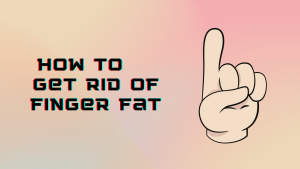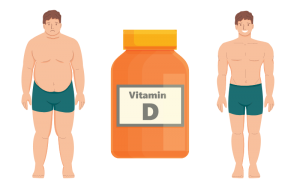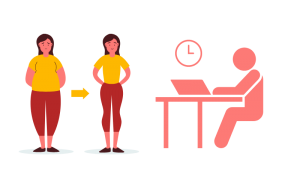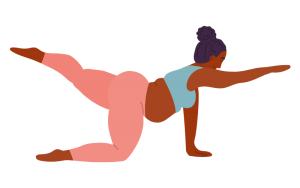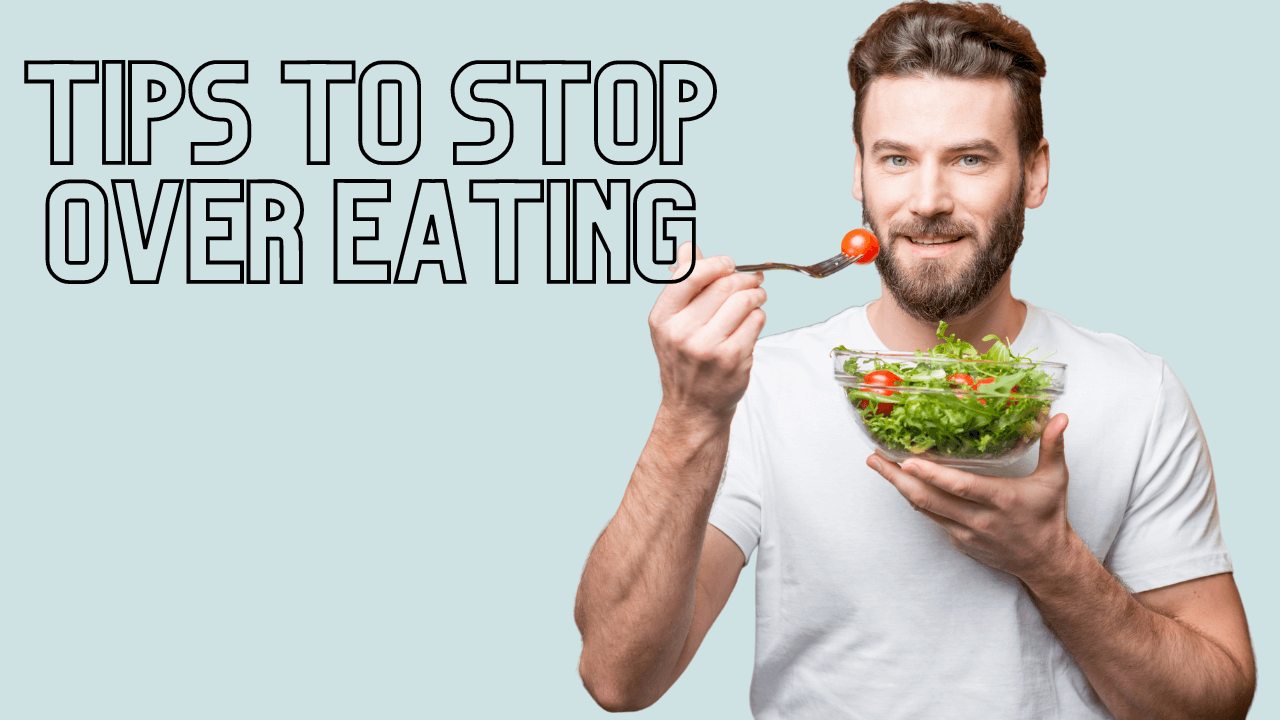
Increasing your protein intake, maintaining a regular exercise plan, and having a high-fiber diet could help you eat less.
However, balancing hunger and satiety can be challenging, especially when managing weight or adopting new dietary practices.
While focusing on mindful eating and staying hydrated could help you consume fewer calories, several other unique strategies could also help you eat fewer calories while also feeling fuller.
This article will provide evidence-based strategies for reducing hunger and appetite, giving you practical ways to establish a satisfying eating routine.
10 Best Ways To Eat Less
-
Increase Your Protein Intake
Protein could make you feel more satisfied and less hungry. It could increase feelings of fullness and satisfaction, helping you eat a restricted number of calories throughout the day.
Protein may also affect ghrelin and peptide YY hunger hormones that control appetite. Increasing protein intake could better regulate these hormones and reduce the likelihood of overeating.
Including plant-based protein sources, such as peas and legumes, in your meals might help you feel fuller for longer.
Recommended daily protein allowance comprises 20-30% of total calories consumed, translating to approximately 0.45-0.55 grams per pound of body weight.
-
Maintain a Regular Exercise Plan
Physical activity reduces the activation of neural pathways associated with food cravings, decreasing the desire for high-calorie foods and increasing the appeal of low-calorie alternatives.
Engaging in exercise could reduce levels of hunger-inducing hormones while increasing feelings of fullness.
Numerous studies have demonstrated that aerobic and resistance training are equally practical in modifying hormone levels and influencing post-exercise food intake.
Some research also suggests that high-intensity exercise impacts appetite more than lower-intensity exercise.
-
Switch To Solid Foods
Solid foods with a thicker texture could impact satiety and help reduce food intake.
A study compared people who ate hard foods, like raw vegetables, and consumed fewer calories than those who ate softer foods, such as risotto and cooked vegetables.
The density and texture of hard foods require more chewing that allows the brain to get the signals of fullness and prevent overeating.
Chewing for a longer duration could enhance the sensory experience of eating and increase fullness, making you eat less.
-
Focus On Mindful Eating
Mindful eating could help you stay fully engaged in eating and help reduce your cravings caused by mood swings.
It could also encourage you to listen to your body and pay attention to the subtle cues of hunger and fullness.
Cultivating mindfulness may help you navigate the complex patterns of behavior intertwined with your appetite.
-
Add Small Plates & Forks
The size of your plates and utensils could affect how much you eat. Research has shown that people fill their plates about 70%, regardless of plate size.
Thus, using a 10-inch plate instead of an 8-inch one could serve you 52% more food. This eating style could make you eat more and consume unwanted extra calories.
Using smaller plates and utensils will make the same portion appear more prominent, and you’ll likely eat less. Small forks and plates may control portion sizes by creating the perception of a larger meal.
-
Stay Hydrated
Research shows that drinking ample water before a meal can reduce calorie intake by 22%. This simple practice could impact our eating habits and help us eat less.
Drinking about 17 ounces (500 ml) of water before a meal can expand our stomach and send signals of fullness to the brain. It can help us feel satisfied with less food and prevent overeating.
-
High-fiber Diet
High-fiber meals may slow the digestive process, gradually releasing nutrients into the system and promoting a sustained feeling of fullness.
Fiber-rich foods may help regulate hunger hormones, which may curb appetite. Studies show that dense, fiber-rich legumes like beans, peas, chickpeas, and lentils have satiety effects.
Whole grains could increase satiety by an impressive 31% compared to meals without fiber.
Including whole grains in your diet may help you feel fuller for longer, which in terms reduces overeating or giving in to cravings.
-
Slowing Down
Taking the time to chew can prevent you from feeling the need to eat more than necessary. Your eating pace can impact your hormonal balance, including insulin and pancreatic polypeptide hormones crucial in regulating hunger and satiety.
Slowing down allows our digestive system to work more efficiently, which may promote better nutrient absorption and reduce discomfort after meals.
-
Avoid Skipping Meals
Skipping meals can disrupt your eating pattern and lead to overeating episodes due to intense hunger. It may slow down your metabolism, causing weight gain.
Fasting has increased in popularity as a weight loss strategy, and it might promote a feast-or-famine mentality that may result in overeating.
Instead of skipping meals, eating healthy snacks between meals or having smaller, regular meals throughout the day is recommended.
-
Add Spices To Your Meals
Adding spices may enhance the flavors and help you eat less. Spices have been found to have appetite-suppressing effects, making them a valuable tool for reducing their caloric intake.
Adding hot peppers to your food could help reduce appetite and hunger. Capsaicin, which is found in hot peppers, decreases calorie intake.
If you can’t handle the heat of hot peppers, adding ginger to your meals could help you feel fuller for longer and prevent overeating.
Signs Of Overeating
Signs of overeating include eating beyond the point of being full and mindlessly eating due to boredom or distraction.
You may experience physical symptoms like:
- Nausea
- Abdominal discomfort
- Bloating
- Heartburn
- Eating for reasons other than fueling the body
These signs can serve as powerful reminders to take action and change our eating habits.
In the long term, overeating can lead to unwanted weight gain, difficulty in losing weight, and prolonged digestive discomfort.
Overeating can also have a detrimental effect on our cholesterol levels and blood sugar management, increasing the risk of having type 2 diabetes and heart disease.
Must See: How To Lose Weight Without Exercise?
Frequently Asked Questions:
- Can Drinking Water Before a Meal Lead to Weight Loss?
Drinking water before a meal can expand the stomach, signal fullness to the brain, and move quickly through the digestive system. Hydrating controls cravings and may prevent confusion between thirst and hunger. - How Can Mindful Eating Help With Reducing Overeating?
Mindful Eating helps reduce overeating by promoting awareness of hunger and fullness cues, preventing mindless eating, and reducing impulsive eating behavior. - What Are the Benefits of Including Protein in Every Meal or Snack?
Including protein in every meal or snack can increase the feelings of fullness and reduce caloric intake. - How Can Using Smaller Plates and Utensils Help Control Portion Sizes?
Using smaller plates and utensils could help trick the brain into perceiving a more considerable amount of food. This visual illusion could lead to reduced calorie intake and greater satisfaction after eating.
Conclusion
Including strategies to eat less could be beneficial for maintaining a healthy weight.
You can promote satiety and reduce calorie intake by focusing on proper hydration, consuming fiber-rich foods, slowing down while eating, and avoiding skipping meals.
However, restricting food to a certain degree could lead to overeating. It is advised to have smaller portions throughout the day rather than not eating anything.
Adopting these evidence-based techniques may help you develop a healthier relationship with food. However, weight loss requires consistent hard work and dedication toward following a proper diet routine. Aim to attain a sustainable balance between eating less and enjoying your favorite food and lifestyle.
If you still find it challenging to manage your appetite and feel hungry, consult a doctor to learn about other additional ways to manage your appetite.
- The information in this review is for informational purposes only and should not be considered medical advice.
- It is not recommended to disregard/delay seeking professional medical advice or treatment because of what you read or accessed through this review.
- The results may vary from individual to individual.
- It is recommended to consult your doctor for any underlying medical conditions or if you are on any prescribed medicines before trying any product or tips.

![How To Lose A Beer Belly? [7 Effective Ways To Reduce Beer Belly]](https://ispcs.com/wp-content/uploads/2024/01/How-To-reduce-Beer-Belly-300x169.png)
